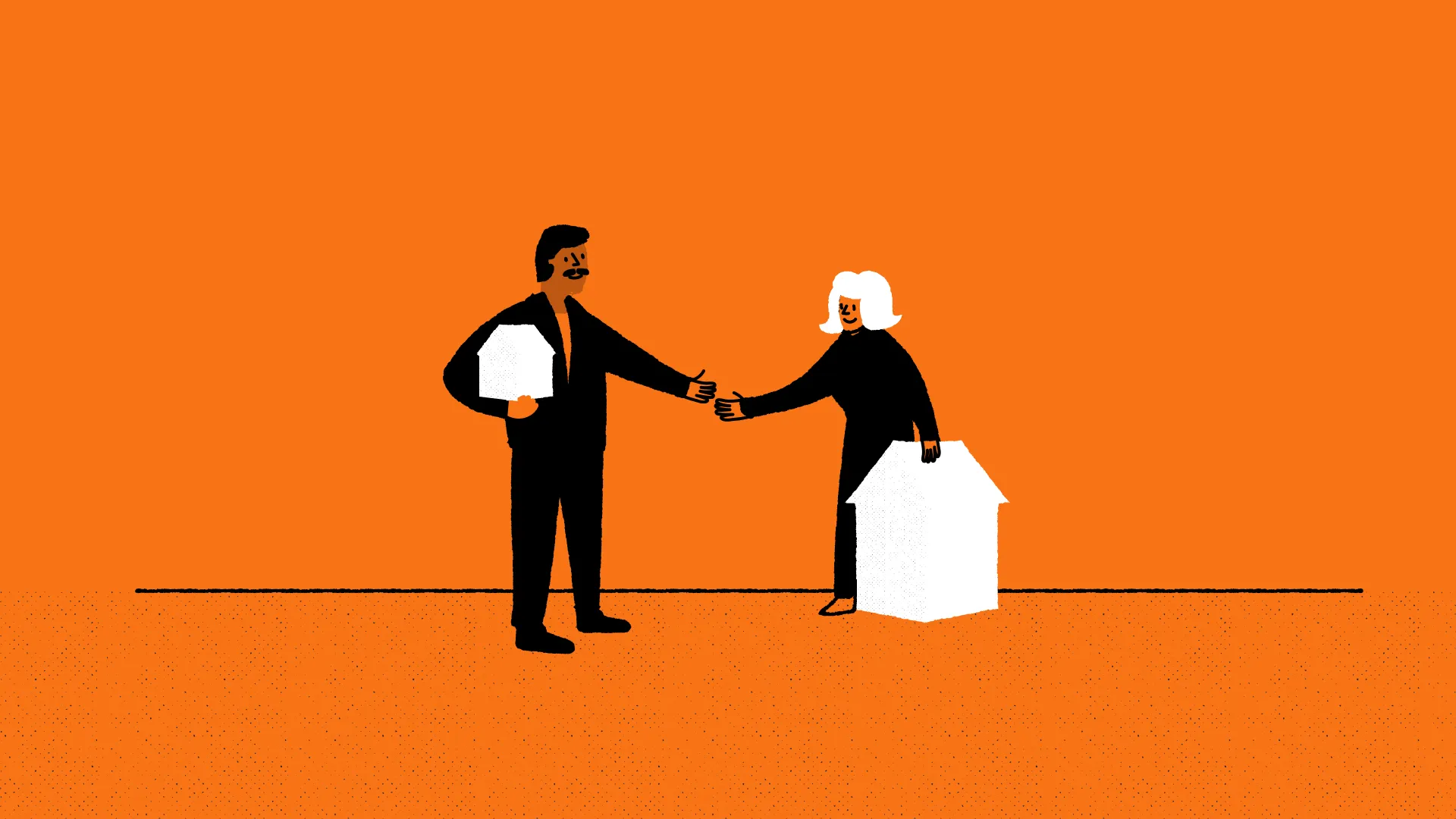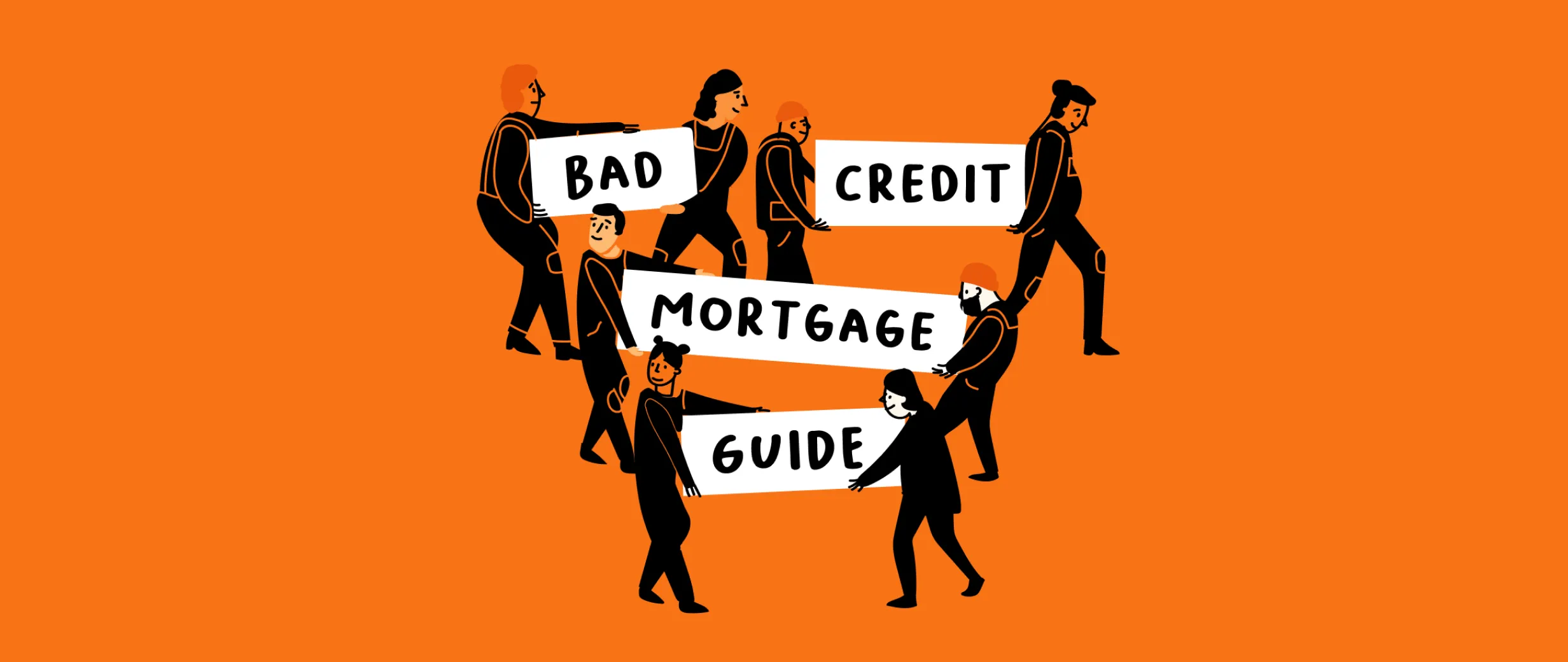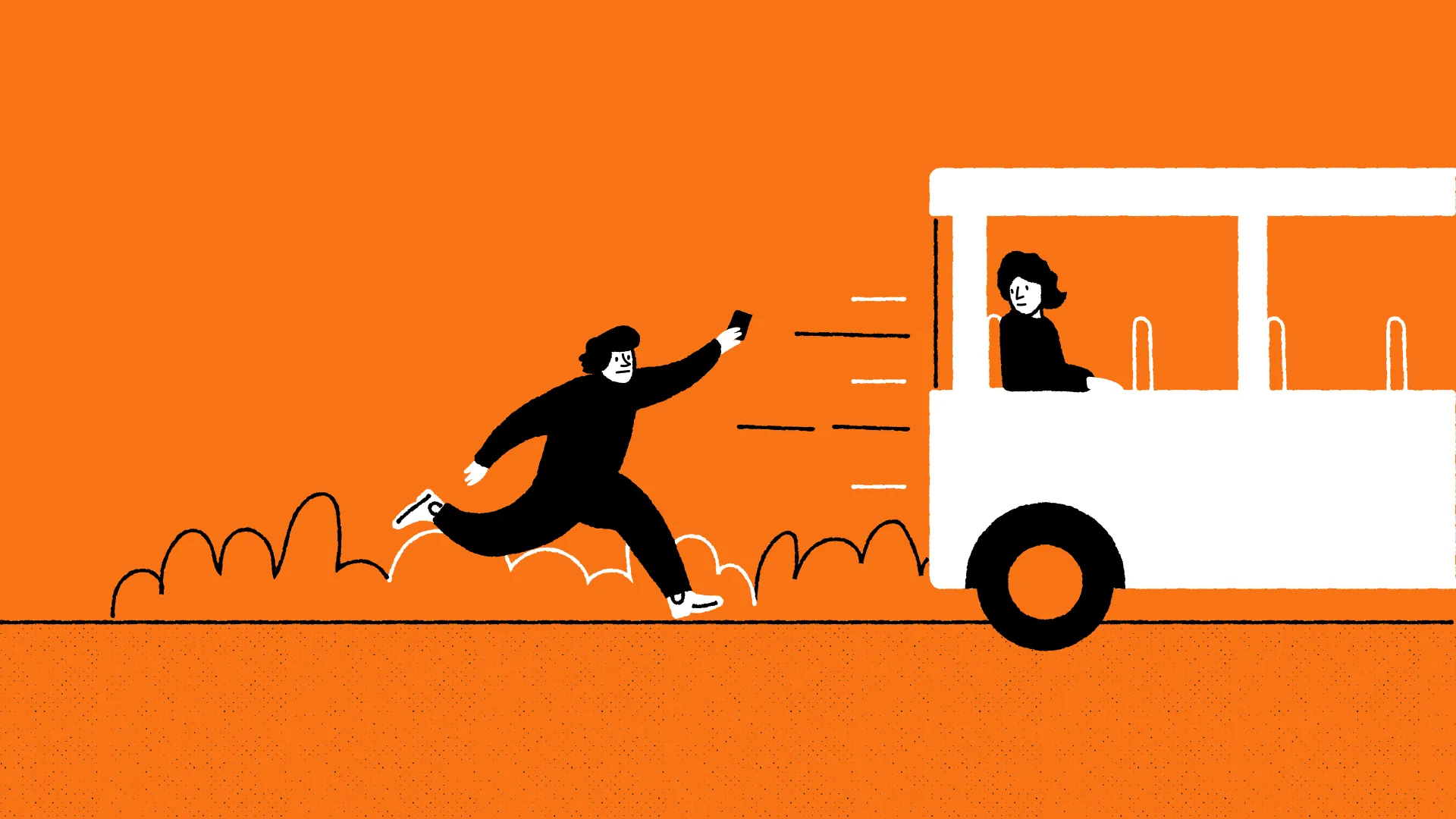Can You Get a Mortgage With a Default?
With the right expertise and guidance, getting a mortgage with a default is possible. Find out how Haysto could help you find an affordable mortgage solution to suit your needs.
Your home may be repossessed if you do not keep up repayments on your mortgage.
Exclusive broker partner to

9 mins
Updated: Nov 16 2025
9 mins
Updated: Nov 16 2025
On this page
Please be aware that by following any external links you are leaving the Haysto website. Please note Haysto nor HL Partnership Limited are responsible for the accuracy of the information contained within external websites accessible from this page.
On this page
A default on your credit file doesn’t have to be a roadblock to getting a mortgage. We could help you clear this path and make your dream move to a new home possible.
Our team of mortgage experts arranges mortgages for people with defaults all the time. Read on to find out how we could make your mortgage possible when others can’t.
What is a default?
A default happens when your account with a creditor or lender is closed because you’ve repeatedly missed payments. You can get a default for any amount owed—it could be a few pounds or a few thousand—on any type of credit account with a bank, utility bills, or your mortgage.
Creditors will usually look to register a default after you’ve missed payments for three to six months, depending on the initial terms agreed upon when you opened the account and all other attempts to reclaim the money have failed.
A default notice is sent as a final notification before your account is closed and is basically your last chance to repay the outstanding balance before further action is taken.
How long does a default stay on your credit file?
A default stays on your credit file for six years from when it was first issued, regardless of whether it’s been satisfied (meaning the outstanding debt has been repaid) or unsatisfied. Once the default’s removed, it can’t be re-registered even if the money owed hasn’t been paid back.
This doesn’t mean you have to wait six years before you can apply for a mortgage. Specialist lenders will still consider applicants with credit defaults - satisfied or unsatisfied.
In fact, there’s nothing stopping you from applying for a mortgage as soon as you receive a default. But, the longer your default has been recorded, the better chance you have of getting the mortgage you need.
Access Your Credit Report
To get a full view of your credit information from all three agencies, use Checkmyfile free for 30 days, then £14.99/month (cancel anytime).
Get Started NowCan you get a mortgage with a default?
Yes, it’s possible. Defaults are a common reason for declining a mortgage application, particularly by high-street lenders. But they aren’t the most severe form of bad credit you can have, and a number of specialist mortgage lenders will accept applicants with defaults.
Most high-street lenders have stricter guidelines and, as a result, are more likely to decline a mortgage application with defaults automatically. However, a specialist lender will take a more considered view, looking at each application on a case-by-case basis before deciding.
For defaults, this will involve looking in more detail at the following factors:
When the default was first registered
Whether the default is satisfied or unsatisfied
How much the default debt was for
The type of default
How many defaults you have
Why the default occurred
If you have a default registered on your Credit Report, rather than trying to apply directly with a mortgage lender, it’s wiser first to seek the help of a mortgage broker with the proper knowledge in this area.
Make an enquiry, and one of our Mortgage Experts will contact you to better understand your situation and help determine which mortgage lenders could be best placed to help.
Are some defaults more severe than others?
Some mortgage lenders will simply take a blanket view that all types of defaults are bad. But most will look in more detail at the type of credit you’ve defaulted on, when it happened, and the amount of debt involved.
So, for example, a mortgage default registered in the last six months with an unpaid debt running into thousands of pounds would be seen as more severe than a default for a mobile phone bill from three years ago of less than, say, £300.
This is exactly why speaking to a mortgage broker first is such a smart move. They would know how each lender assesses applicants with different types of defaults, saving you a lot of time by recommending those lenders more open to helping with your situation.
How can a default affect your chances of getting a mortgage?
Your chances of getting a mortgage with a default will largely depend on when it was registered, the size of the debt, how many you have, and whether it’s satisfied or unsatisfied. This information is important because it will determine the number of mortgage lenders available to you.
For example, more mortgage lenders will accept a default for less than £200 registered over three years ago than one for over £1,000 received in the last six months.
Every mortgage lender will assess each of these factors against their eligibility criteria. Here’s how they could affect your application:
When the default was first registered. Most specialist mortgage lenders can potentially ignore any satisfied default registered over three years ago, even though it will still show on your credit file if it's less than six years old. Some can even consider certain defaults registered in the last three months. The older your default is, the better your chance of getting a mortgage.
Whether the default is satisfied or unsatisfied. A satisfied default will attract more mortgage lenders than one that’s unsatisfied (meaning the debt has not been fully repaid). Some mortgage lenders will still consider applicants with unsatisfied defaults, usually depending on their value and age.
How much the default debt was for. Most high street lenders will place a maximum value on all defaults, and anything over that amount will be declined. Specialist lenders tend to be more open-minded and rarely place an absolute maximum value on a default over two years old. They can also potentially ignore certain defaults (mobile phone bills, for example) below a certain amount, typically £200-£300.
The type of default. Mortgage lenders deem some defaults more acceptable than others. Defaults for mobile phone bills and mail-order accounts are usually low-value, and in some cases, lenders will ignore them completely. However, an applicant with a mortgage or car finance default is seen as being more of a risk as they’d typically be much higher value. For more severe defaults, the age and whether it was satisfied will be considerations for lenders.
How many defaults you have. Having multiple defaults registered on your credit file can make it more difficult to get a mortgage, particularly with a high-street lender. Most specialist lenders will accept more than one default on an application, depending on the age and value.
Why the default occurred. Because specialist lenders consider applications on a case-by-case basis rather than a high street lender’s ‘computer says no’ approach, they will take into account any special circumstances that may have caused the default, such as a brief period of unemployment or a change of address that meant you didn’t receive any notification that you owed this money.

Let's Get Started
We Make Mortgages Possible
Our Mortgage Experts are fully qualified with experience in bad credit, self-employed and complex mortgages. They have a proven track record of getting mortgages for people who’ve been rejected elsewhere.
Get Started Now Get Started NowHow much can you borrow with a default?
Mortgage lenders use a multiple of your salary when calculating how much you can borrow for a mortgage, usually up to 4.5 times your annual income. With a default, a lender could lower your loan-to-value (LTV) limit to cover any additional risk.
For example, someone with a perfect credit score and an annual income of £40,000 could potentially borrow up to £180,000 (4.5 x 40,000). Let’s say this same applicant wants to buy a house worth £200,000, but they now have a default. A lender could place a maximum loan-to-value limit of 80% as a condition of their mortgage offer. This means they can only borrow £160,000.
How much deposit do you need?
If your default is over three years old, it’s possible to get a mortgage with a deposit of 5% to 10% if the rest of your application is strong. Less than three years old, and the deposit will likely need to be between 10% and 15%.
Mortgage lenders that accept defaults
Several specialist mortgage lenders will accept applicants with defaults registered on their credit file. These include (but aren’t limited to) Aldermore, Mansfield Building Society, Pepper Money, Bluestone Mortgages and Precise Mortgages.
The table below gives you an idea of what these lenders will accept when reviewing mortgage applications with defaults.*
Mortgage Lender | Eligibility Requirements For Satisfied Defaults | Will Consider Unsatisfied Defaults? |
|---|---|---|
Aldermore | Will ignore all communication defaults (mobile phone bills) and all defaults valued below £300. | Yes. |
Mansfield Building Society | Can potentially consider applicants with defaults registered more than 3 months ago and less than 12 months up to a maximum value of £1,000. | Yes. |
Pepper Money | The default must be 6 months old at the time of the mortgage offer. Up to 2 individual defaults for mail order, mobile, and utility bills below £200 can be ignored. | Yes. |
Bluestone Mortgages | Will consider with up to 4 registered defaults in the last 3 years per applicant (with none in the previous 6 months). | Yes. |
Precise Mortgages | Can potentially ignore any defaults registered over 3 years ago | Yes. |
*The above information was sourced from Criteria Brain and was correct at the time of writing. All mortgage lenders' eligibility criteria can be subject to change at any time at the lender’s discretion
How to improve your chances of getting a mortgage with a default
If you currently have a default registered on your Credit Report and want to apply for a mortgage, there’s a few things you can do to give yourself a better chance:
Check your credit Reports. Even if you already know you have a default registered against you, it’s a good idea to download your credit reports to find out when it was first recorded and if all the information held on file is correct.
Repay the money owed on the default. A satisfied default will be looked at more favourably, so if you can repay the amount owed, you should do so before applying for a mortgage. You don’t ‘have’ to do this, but you’ll have a better chance of getting the mortgage you need if you do.
Repair your credit score. This is important regardless of whether your default is satisfied or not. Make sure you’re registered on the electoral roll* and all other financial commitments are being paid on time. Keep checking your credit record to see if your score is improving. You should also avoid applying for any other forms of credit unless absolutely necessary.
Speak to a mortgage broker. An experienced broker will know exactly who to apply to and how to get your mortgage approved, saving you a lot of time and unnecessary hassle.
How Haysto could make your mortgage possible
At Haysto , our dedicated team will guide you through the whole mortgage process from start to finish, including:
Ensuring your mortgage application is ready for submission within 24 hours
Searching the entire mortgage market to help find the right mortgage lenders offering the best terms for this type of credit issue
Providing a true Agreement In Principle (AIP) - one you can trust directly from a lender
£100 gift card if we can’t make your mortgage possible, but another broker can
Just make an enquiry, and one of our Mortgage Experts will contact you immediately. Rest assured, if there’s a mortgage solution out there for you, we’ll find it.
We Make Mortgages Possible
Our Mortgage Experts are fully qualified with experience in bad credit, self-employed and complex mortgages. They have a proven track record of getting mortgages for people who’ve been rejected elsewhere.
Get Started NowAny questions?
We're a judgement-free zone. If you still have questions, we've heard most of them before. Here are some of them answered by our team of experts.
Yes, potentially, if you believe the default has been registered incorrectly. You can do this by contacting the Credit Reference Agency that recorded the default (this will be on your Credit Report) and explaining why it should be removed.
The agency will then contact the lender to confirm the accuracy of the information you’ve provided. If the lender agrees, the default can be removed, and your credit record will be updated to reflect this.
Yes, it’s possible. Once a default reaches two years old, more mortgage lenders will be willing to accept you for a mortgage. Some lenders may even ignore your default entirely if it’s been satisfied and was originally for a low amount (typically less than £200-£300).
Lenders will consider a remortgage with a default the same way they would a new mortgage. So, the lender will consider the age of the default, the size of the debt, whether it’s satisfied or unsatisfied, and why it occurred before making a decision.
Related Articles

Bad Credit Mortgage Lenders
Find out who the best bad credit mortgage lenders are and how Haysto could make your mortgage possible due to our strong working relationship with them.
Read guide

Getting a Mortgage With Bad Credit
Bad credit doesn’t mean you can’t get a mortgage. Our guide to bad credit mortgages explains how we can help make your mortgage possible.
Read guide

Getting a Mortgage After Late Payments
Had a mortgage declined due to a late payment? We understand and can help you explore mortgage options that suit your needs.
Read guide
Information
Tools & Guides
Haysto, a trading style of Haysto Ltd, is an appointed representative of HL Partnership Limited, which is authorised and regulated by the Financial Conduct Authority.Registered Office: Haysto, Crystal House, 24 Cattle Market Street, Norwich, NR1 3DY. Registered in England and Wales No. 12527065
There may be a fee for mortgage advice. The exact amount depends upon your circumstances but will range from £599 to £1599 and this will be discussed and agreed with you at the earliest opportunity.
The guidance and/or information contained within this website is subject to the UK regulatory regime and is therefore targeted at consumers based in the UK.
Your home may be repossessed if you do not keep up repayments on your mortgage.








